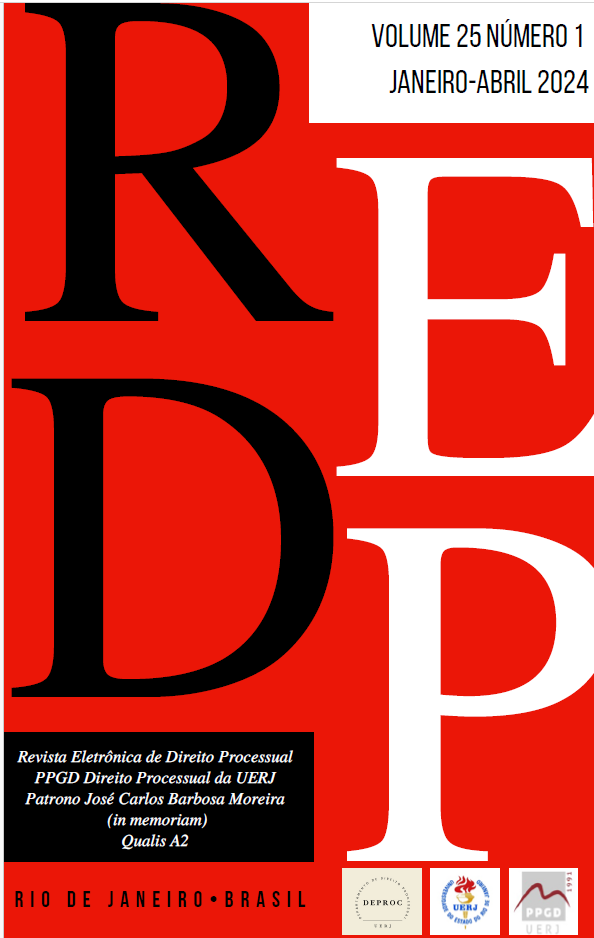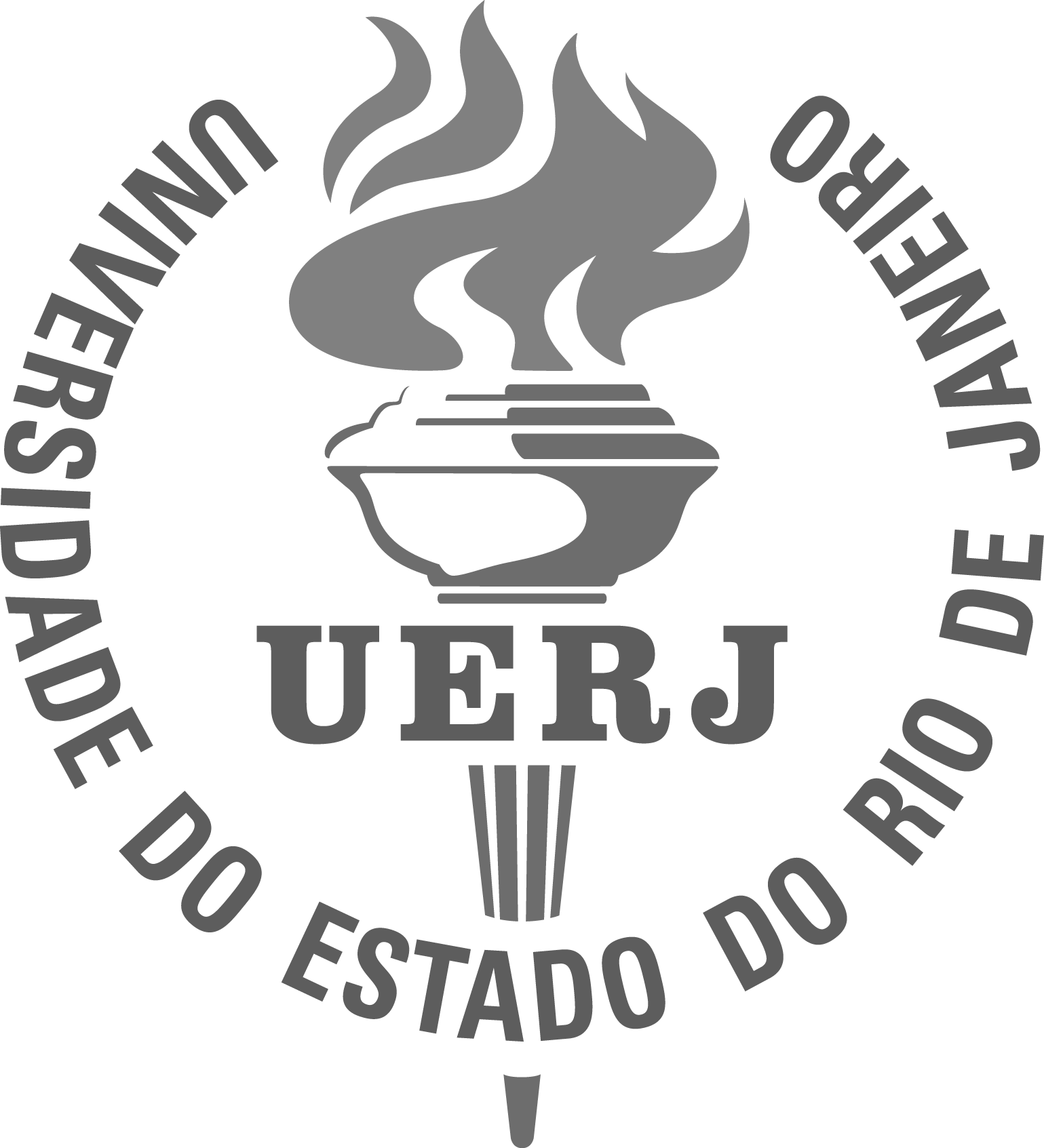A RESPONSABILIDADE TRABALHISTA DE SÓCIOS, ADMINISTRADORES, CONTROLADORES E ACIONISTAS COM PODER DE INFLUÊNCIA NAS EMPRESAS FALIDAS OU EM RECUPERAÇÃO JUDICIAL ASPECTOS DE DIREITO PROCESSUAL E MATERIAL
DOI:
https://doi.org/10.12957/redp.2024.81885Abstract
In this study on liability for labor debts in situations of bankruptcy and judicial reorganization, the analysis focuses meticulously on the complex issue of disregarding legal personality in an effort to reach the assets of partners, shareholders, administrators and controllers of the bankrupt or reorganized company.
The article examines in detail the challenges intrinsic to the incident of disregard of legal personality (IDPJ), starting with the jurisdiction to process the incident in question, whether it is exclusive to the universal court, or whether it is possible before the Labor Court.
It is argued that if there is a bankruptcy court, it will be the specialized and competent court to assess whether or not the partner, administrator, controller or shareholder with the power to influence the company in reorganization or bankruptcy should be held liable, considering the plurality of contexts that present themselves in synergy with business law. The conclusion of this study emphatically underscores the vital role played by the bankruptcy court, highlighting its central function in determining the clear and fair limits of the liability of these various players. By highlighting the importance of the concursal court, this research not only explores the legal possibilities, but also offers fundamental perspectives for legal professionals and academics.
The work addresses the so-called "Major Theory" and "Minor Theory" on the subject of disregard and the respective evolution in labor jurisprudence.
In addition, the main provisions of Law 14.112/2020 are presented, which represent a real revolution in the normative provisions of Law 11.101/2005, updating the legislation on judicial reorganization, extrajudicial decree and bankruptcy of entrepreneurs and companies. This legal panorama is taken as a possible milestone or overruling for reflection on new paths on the subject, considering the prevailing case law of the Superior Labor Court to the effect that the redirection of enforcement against the assets of co-responsible parties of bankrupt companies or companies in reorganization is fully feasible, to the extent that such assets are not confused with the assets of the block of assets submitted to the universal court.
By enriching the understanding of the laws applicable to these specific scenarios, this study stands out as a valuable source of knowledge. Its substantial contribution to the field not only improves legal practice, but also stimulates academic discussions and future research, promoting a deeper and more informed understanding of liability for labor debts in corporate insolvency scenarios. In this context, the pressing need for careful and impartial evaluations becomes evident, and is essential for establishing the responsibilities of each party in an insolvency. By enriching the understanding of the laws applicable to these specific scenarios, this study stands out as a valuable source of knowledge. Its substantial contribution to the field not only enhances legal practice, but also stimulates academic discussions and future research, promoting a deeper and more informed understanding of liability for labor debts in corporate insolvency scenarios. In this context, the pressing need for careful and impartial evaluations becomes evident, and is essential for establishing the responsibilities of each party in companies subject to reorganization or bankruptcy proceedings. As such, this research becomes an essential tool for all those seeking to unravel the intricate intricacies of liability for labor debts in corporate insolvency contexts, offering detailed insights and a holistic approach to a comprehensive and informed understanding of these complex legal issues. On this challenging topic, the research also sheds light on the social and economic implications, examining how court decisions can impact not only the parties involved, but also the stability of the labor market and investor confidence. In addition, it highlights the importance of constantly evolving case law and legal reforms, underscoring the need for continuous adaptation of the legal system to ensure fairness and justice in the midst of business and labor relations.
Downloads
Published
How to Cite
Issue
Section
License
Copyright (c) 2024 Carolina Tupinambá, João Otávio De Noronha

This work is licensed under a Creative Commons Attribution 4.0 International License.
Todos os artigos publicados na Revista Eletrônica de Direito Processual (REDP) (Departamento de Direito Processual, Universidade do Estado do Rio de Janeiro, Brasil) são licenciados por meio de uma Licença Creative Commons - Atribuição 4.0 Internacional (CC BY 4.0).
Os autores retêm os direitos autorais de seu artigo e concordam em licenciar seu trabalho com a licença CC BY 4.0, aceitando assim os termos e condições específicos desta licença disponíveis no seguinte website: https://creativecommons.org/licenses/by/4.0/legalcode.
- Os autores concedem à REDP o direito de primeira publicação, de se identificar como publicadora original do trabalho e concedem à revista uma licença de direitos não exclusivos para utilizar o trabalho das seguintes formas: Reproduzir, vender e distribuir cópias eletrônicas ou impressas do manuscrito como um todo, de partes específicas do manuscrito e de suas traduções para qualquer idioma;
- O uso do artigo por terceiros é livre, contanto que a integridade da publicação seja mantida e seus autores originais, periódico de primeira publicação e detalhes de citação sejam identificados.
Dentro dos termos da licença, os autores podem entrar em acordos contratuais adicionais separados para a distribuição não exclusiva da versão publicada do trabalho na revista.
Copyright and Licensing
All articles published in the Procedural Law Electronic Review (REDP) (Department of Procedural Law, State University of Rio de Janeiro, Brazil) are licensed under a Creative Commons License - Attribution 4.0 International (CC BY 4.0).
- Authors retain copyright to their article and agree to license their work under the CC BY 4.0 license, thereby accepting the specific terms and conditions of this license available at the following website: https://creativecommons.org/licenses/by/4.0/ legal code.
- Authors grant REDP the right of first publication, to identify itself as the original publisher of the work, and grant the journal a non-exclusive license to use the work in the following ways: Reproduce, sell and distribute electronic or printed copies of the manuscript as a whole, of specific parts of the manuscript and its translations into any language;
- Use of the article by third parties is free, as long as the integrity of the publication is maintained and its original authors, first publication journal, and citation details are identified.
Within the terms of the license, authors may enter into separate additional contractual agreements for the non-exclusive distribution of the published version of the work in the journal.






